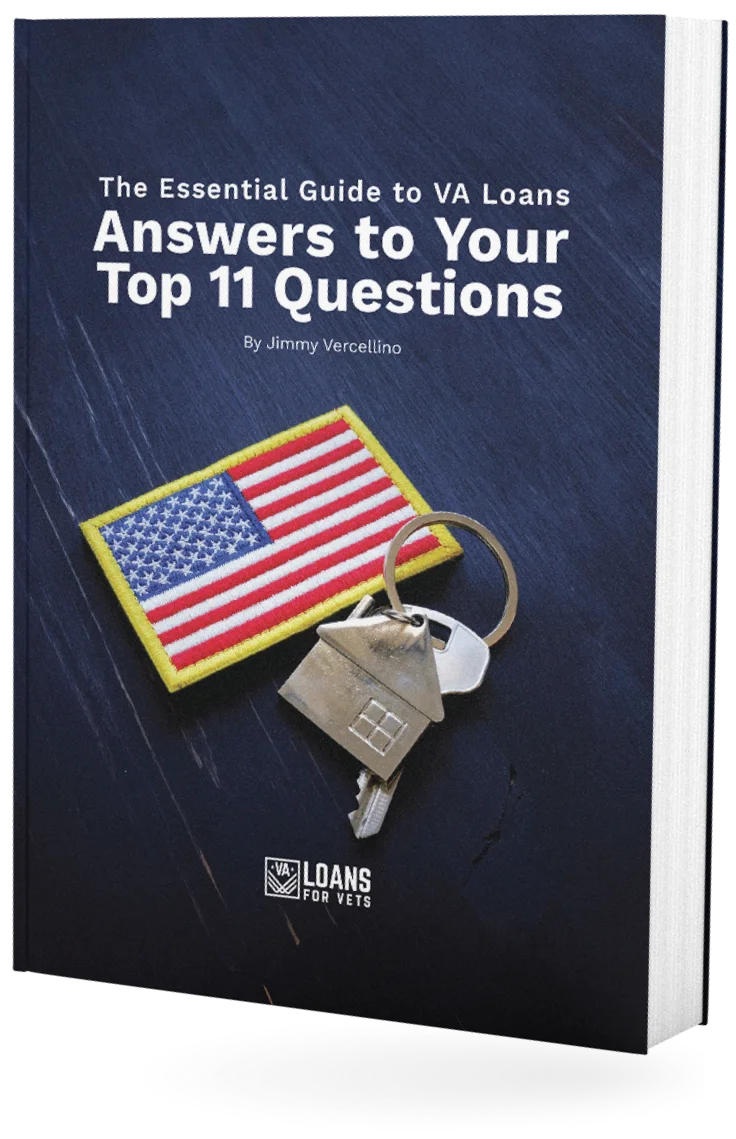As a United States military member, you deserve a peaceful place to call home. But for many service members, navigating the ins and outs of the VA home loan qualification process can be a stressful experience. This is especially true when it comes to understanding VA loan income requirements, which can have a drastic impact on your ability to buy a home.
Thankfully, you don’t have to take on the application process alone. At VA Loans for Vets, we’re committed to helping both active duty and retired military members qualify for a VA loan, even if you’re not sure where to start.
Here’s everything you need to know about the VA loan income requirements…
VA Home Loan Down Payment Requirements
For most home buyers, coming up with a sizable down payment can be a major barrier standing between them and a property that they love.
But with VA loan programs, there’s a good chance you’ll be able to bypass a down payment altogether. Since VA loans are designed to make it easier for military service members to buy a home, the majority of lenders won’t require you to make a down payment on a potential property.
But of course, this does come with a few stipulations. For example, your new home will need to be appraised before your lender can approve your loan. If the sale price is higher than the appraisal value, you may be forced to choose a different property or cover the difference yourself.
Residual Income Requirements
Next, your lender will need to make sure that you’ll be able to make your mortgage payment without building up monthly debt. This not only protects you from taking out a loan that you can’t afford, but it also protects your lender from losing money if you aren’t able to make your monthly payments.
This is called a residual income requirement.
To calculate this, you can deduct your major expenses from your gross monthly income. This includes things like utilities, insurance, child support, and any other monthly debts you may have.
Once you’ve done the math, you’ll have a much better idea of how much mortgage you can afford, while still living comfortably.
Debt-To-Income Ratios For A VA Home Loan
Another key financial calculation you’ll need to make is your debt-to-income ratio or DTI. To put it simply, your DTI is the percentage of your income that is used up by monthly debts. Lenders use this percentage to determine your overall loan eligibility, so that they can offer you a loan amount that meets your budget.
On average, good debt-to-income ratios will not exceed 41% of your gross monthly income, leaving you more than half of your income for other expenses.
If you’d like to calculate your own DTI, you can start by adding up your recurring monthly expenses, including…
- Hypothetical mortgage payment, insurance, and HOA fees
- Utilities
- Car payments
- Student loan payments
- Child support or daycare costs
- Credit cards
Then, you can divide this number by your monthly income. This will give you a thorough understanding of where your DTI stands, allowing you to plan accordingly.
Other Factors That Impact Your Loan Eligibility
Even with a waived down payment and a good DTI, there are a few other considerations that your lender will make before approving you for a VA home loan.
Credit Score
Just like with a traditional home loan, your credit score will likely play a key role in determining your eligibility for a VA loan. Once you begin the application process, your potential lender will pull a copy of your credit report, so that they can determine if any outstanding issues could impact your mortgage payment.
If you don’t already know your credit score, it’s a good idea to familiarize yourself with your existing credit report before you try to qualify for a VA loan. This can help you clear up any issues that you may not have been aware of.
Surviving Spouse Eligibility
Although VA loan programs were made with military service members in mind, the Department of Veteran Affairs has made it even easier for spouses to take advantage of these same benefits, even if their partner has passed away.
So, if your spouse was killed in the line of duty or passed away from service-related injuries, you may be able to find financial assistance that can help you buy a home for your military family.
Occupancy Requirements
Finally, it’s important to keep in mind that VA home loans are only intended to help you afford a primary residence. That means you won’t be able to use your loan for any vacation or investment properties. And even if you’re still on active duty and may be away from your home for extended periods of time, there are flexible occupancy requirements that can help you maintain your VA loan eligibility.
Learn more about VA loan occupancy requirements here: valoansforvets.com/va-loan-occupancy-requirements
Ready To Check Your VA Home Loan Eligibility?
We understand that starting the qualification process for a VA home loan can be an overwhelming experience.
That’s why our team of VA home loan specialists is here to guide you through every aspect of the VA loan income requirements so that you can feel good about your ability to qualify for a VA loan.
Take the first step in the loan application process by calling (602)-908-5849 today.



